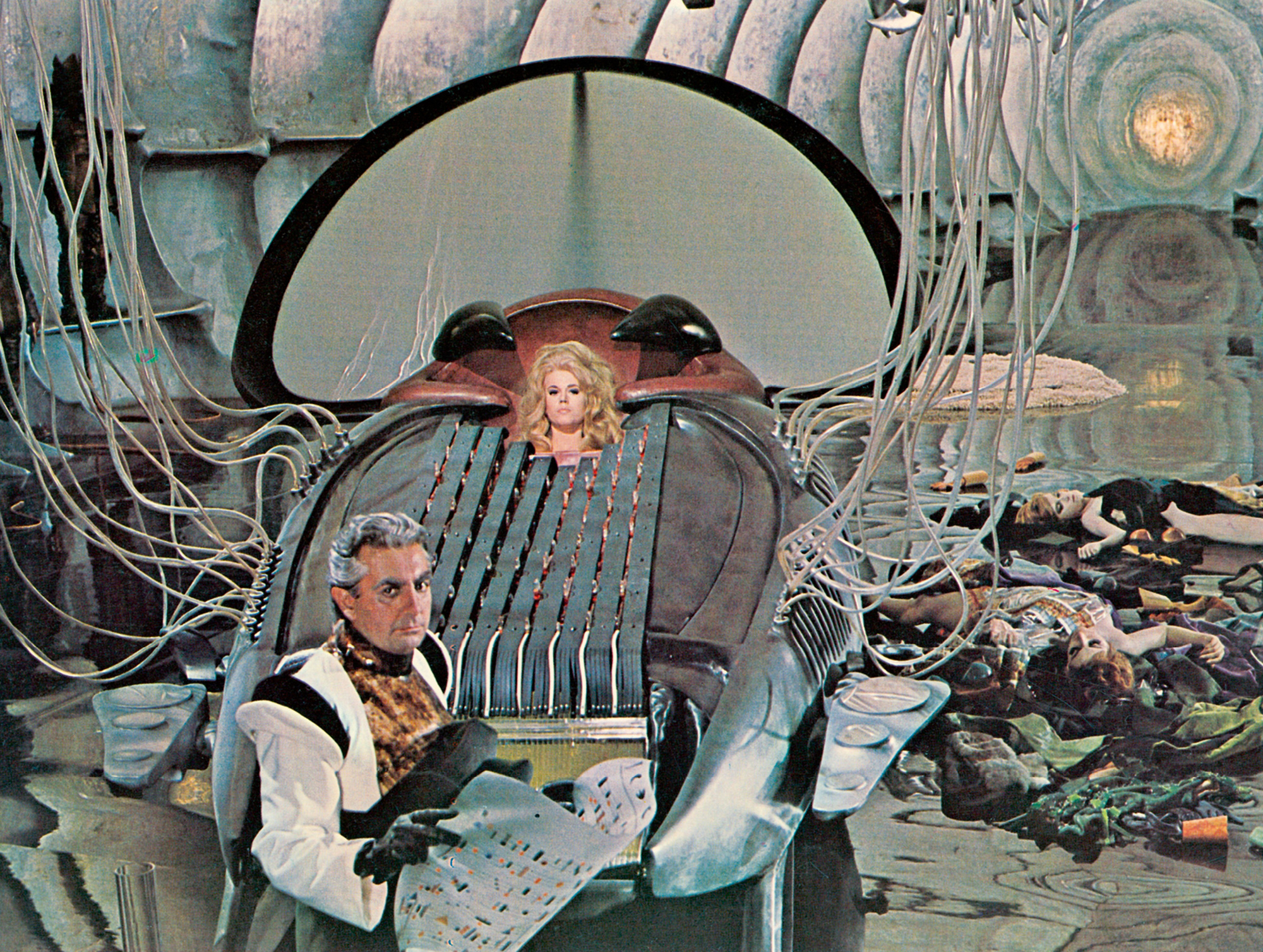Fall 2013
Sex and Anti-Sex
The monstrous modern couple
Aaron Schuster
Jane Fonda finds herself in Dr. Durand Durand’s Excessive Machine. Still from Roger Vadim, Barbarella, 1968.
The Revolution demands concentration. It cannot tolerate orgiastic conditions.
— Vladimir Ilyich Lenin, reported in Clara Zetkin, Reminiscences of Lenin (1924)
ASCETICISMS
“Sexuality in itself I find repulsive. I would gladly do without it. I only wish all mankind had reached that point. I am sick and tired of being a slave to these filthy urges.”
[1] This is how Antonin Artaud opened the sixth session of the surrealists’ “Investigations on Sexuality,” a series of roundtable discussions held in 1928 and again between 1930 and 1932 that read like a cross between the Kinsey Report, male clubhouse banter, and a Monty Python sketch. Artaud’s brief contribution—he attended only half of one session—is striking in its contrariness. Turning to Benjamin Péret, he asks, “How far is your mind tainted by sex?” and then goes on to lecture André Breton about the need to distinguish sexual lust from amorous sentiment. When questioned about how long he can go without making love, the dramatist of cruelty doesn’t miss a beat: “Years.” Later confronted with the favorite surrealist theme of
the Woman—he is asked by Raymond Queneau whether he thinks that there is one woman who is his destiny—Artaud counters with dry, de-sublimating humor: “Yes,” he replies, but quickly adds that he shall probably never meet this woman, at least not in this life, and that he also has a very low opinion of her.
Artaud’s contempt for sexuality may seem extreme and anomalous, but it is in fact rooted in a venerable speculative tradition. In the opening pages of Plato’s Republic, we read the following conversation: “I was once present when someone asked the poet Sophocles: ‘How are you as far as sex goes, Sophocles? Can you still make love with a woman?’ ‘Quiet, man,’ the poet replied, ‘I am very glad to have escaped from all that, like a slave who has escaped from a savage and tyrannical master.’”[2] Sophocles, who knows something about the troubles caused by sex, is invoked as a moral authority and advocate of negative sexual freedom. In order to be a true master, one must be rid of the “mad master.” There is a fateful convergence of sex and politics here, announced at the very outset of the dialogue. It is as if Plato had said to himself, “What better way to begin your masterwork on the governance of the state than with a digression on the virtues of impotence?” Already it is hinted that the construction of the ideal polis can only be an affair of philosopher-eunuchs.
